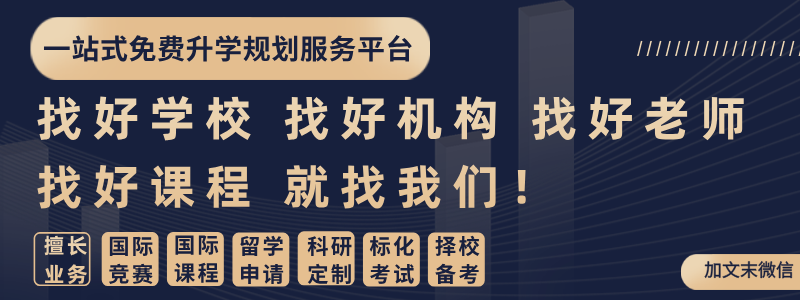这周我们来读一篇转载自4月7号New York Times“纽约时报”Opinion版块的一篇投稿文章。文章作者Jon A. Shields是美国著名文理学院Claremont McKenna College的政治学科教授;同时也是去年成立的Academic Freedom Alliance组织的创始人之一,旨在保护大学教授学术自由。本文仅代表他个人观点意见。
作为一位持保守派观点的大学教授,他反思自己过去坚持无条件学术自由的做法,指出在当前大学课堂和学术领域,既不应任由当前西方流行的“safetyism”和“政治正确”文化来窒息各种不同思想的自由表达,也不应以“说实话的自由”为名,对“政治正确”、cancel culture等采取粗暴对抗的手段。他通过大学课堂的自身经历,提倡一种宽容平和的自由学术讨论气氛,自我控制情绪,不急于给不同于自己态度的观点打上各种“标签”,更不应把正常的学术范围讨论上纲上线,变为个人评断和攻击。
他然后把这种思路拓展到当前的美国两极化社会,激进派和保守派之间的激烈对抗,呼吁双方采取有所克制的方式,把对话建立在文明社会的一定准则之上,在“safe spaces”里进行,而不是无所不用其极。
Like other conservative professors who are advocates for free speech on campus, I once opposed efforts to create a classroom climate in which students are protected from speech they find emotionally upsetting, ranging from “microaggressions” to political perspectives that diverge from current liberal orthodoxy. Efforts to create these “safe spaces” seemed, to me, to infantilize students by insulating them from speech they found the least bit upsetting. After all, an unquestioned objective of a liberal education, I supposed, was to make students uncomfortable. Now I think that while we certainly shouldn’t be preoccupied with policing microaggressions or silencing contrarian viewpoints, we need to take the comfort of students far more seriously.
Teaching courses on controversial topics — including cancel culture, gender, and race — has taught me that in order to get students to engage in open inquiry, we must attend to their feelings of insecurity. The debate we should be having is not one that pits free expression against safe spaces. The real question is how to design safe spaces that aid the goals of liberal education.
There is now little doubt that students frequently bite their tongues because they feel unsafe. A 2021 survey of more than 37,000 college students — by far the largest on free expression to date — found that more than 80 percent of students censor their own viewpoints at least some of the time, while roughly one in five students regularly do so. Meanwhile, only 40 percent of students say that they are comfortable openly disagreeing with their professors.
While robust defenses of free expression and debate, like the “Chicago Principles” — a widely adopted statement developed at the University of Chicago in 2014 — are important, they do little to soften the climate of fear that has gripped our campuses. This is because such statements of abstract principle — like the liberal tradition from which they spring — neglect the concrete social norms necessary to facilitate and regulate the collective search for truth in college classrooms.
All of us who teach controversial subjects are struggling to identify and cultivate these norms, especially as our students have become more anxious in the age of cancel culture. For example, when I first taught a course on policing in the wake of George Floyd’s murder, some of my students lobbied for a version of the “Vegas rule” since they worried about their comments spilling out into social media land. So, I told them: “What happens in Government 137B, stays in Government 137B.”
I have little doubt that our “Vegas rule” allowed them to express perspectives that ranged from support for abolishing the police to center-right endorsements of the status quo. As soon as I announced it, in fact, one student let out an audible sigh of relief. But I have to confess that in asking students to maintain our classroom as a place of private deliberation I am asking them to keep quiet — and all in the name of open and free expression.
Since then, I have been more intentional about laying out the social norms that should govern classroom discussions. Some (like being respectful and listening to others attentively) are unobjectionable. But others arguably are. For example, I also encourage my students to assume that their peers are making arguments in good faith. I suspect this norm of charity discourages students from labeling one another as racists or sexists or transphobes.
Though not explicitly forbidden, I even hope that this norm inclines them to hesitate before branding ideas as inherently bigoted, since such charges tend to stick to the speaker and chill discussion. Such caution, I suspect, not only cultivates a climate of open inquiry, it also prompts all of us to actually explain why some ideas might be wrongheaded, rather than simply placing them beyond the pale.
Most of the time, I suspect, such prohibitions lead to what the always astute cultural critic Martha Bayles calls “voluntary restraint” rather than self-censorship. Ms. Bayles says that while the latter occurs “under the shadow of coercion,” the former happens “for reasons more or less freely arrived at and agreed upon” by a “particular community.”
Although I’m aiming for voluntary restraint rather than self-censorship, in practice some element of social pressure — and, thus, censorship — is probably inevitable. That doesn’t trouble me so long as these occasional acts of self-censorship actually widen spaces for the discussion of ideas by softening the climate of fear on our campuses.
Happily, no student has yet protested my class expectations — and I’m frankly not sure what I would do, if they did. But however my mix of class norms and guidelines evolve, they’ll grow up from experience, not simply downward from the abstract principles of academic freedom found in statements like Chicago’s.
Regrettably, too many on the right who advocate free speech have embraced a normless public square, one that celebrates transgression as an antidote to cancel culture. Of course, Donald Trump is the most prominent offender, as usual. From the beginning of his presidency, Mr. Trump mocked the expectation that his speech should be “presidential.” But other conservative apostles of free speech have reveled in transgression as well. Before a delighted crowd at the University of Houston, for example, conservative provocateur Milo Yiannopoulos told one protester something so coarse the Times won’t even print it. He said, “[expletive] your feelings.”
The right’s libertine impulse is driven in part by an American obsession with authenticity. This cult of authenticity — now fueling conservatism’s populist turn — says our public expression should be unmediated by social pressures. But public life — both in and outside our college campuses — requires inauthenticity.
For all their errors, excesses and harms, advocates of “safetyism” on the left rightly reject this culture of transgression because they understand that normlessness can’t be a foundation for any community, even a free one.
Before their Trumpian turn, conservatives more often presupposed that a free people needed customs, habits and norms that civilize and integrate them into the social order. It was a bedrock principle we called ordered liberty. Especially in this age of anomie, conservatives need to re-embrace that tradition by giving more thought to the sort of culture and social integration that’s required to create a community of truth seekers.
That community will require safe spaces in our college classrooms. So, let’s stop opposing safety and freedom. Instead, let’s elaborate and defend our own version of safe spaces. Truly free and open inquiry in our classrooms depends on it.














